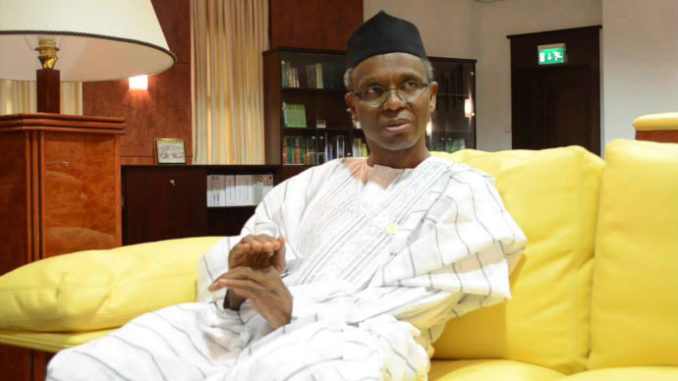
Malam Nasir el-Rufai is the governor of Kaduna State. In this interview with journalists in Kaduna, he speaks on his stewardship so far, especially the free feeding programme, the increase in revenue and budget implementation.
Excerpts:
You submitted the 2017 appropriation bill to the State House of Assembly. Can you give a breakdown of the implementation of this year’s budget?
Our budget implementation has been satisfactory. I will not say it is very impressive by our standard. But if we compare it to what has been done before, this administration has done very well. As at October 2016, we had about 50 per cent budget implementation with the following breakdown: 85 per cent of personnel cost has been drawn; 77 per cent of overhead cost has been drawn; and 32 per cent of capital expenditure has been drawn. So, the overall in percentages, amounts to about 50 per cent implementation.
In specific terms, as at October this year, we have spent about N29 billion on capital projects compared to N27.5 billion in 2013 for the entire year; N17 billion in 2014 for the entire year; and N27.6 billion in 2015 for the entire year. So, we have already spent more in the first 10 months of this year than the previous three years, two and a half of which were under the PDP government.
The bulk of this spending was on emergency education intervention, water supply, road construction and health care. We are spending money in areas that we think add value to the society and create jobs. We have seen a drastic reduction in recurrent expenditure, though we have employed more than 5,000 people in the public service since we came in.
As you recall, we employed 2,550 into Kaduna State Traffic Enforcement and Environmental Law Enforcement Agency (KASTELEA) and we also employed over 2,250 science teachers in our secondary schools. Yet, our personal expenditure has been going down. As at October this year, our recurrent expenditure clocked N43.4 billion.
In 2013, the PDP government spent N56 billion on recurrent expenditure. So, we are much lower. They spent N66.7 billion in 2014 and N64 billion in 2015. But so far, we have spent only N43.4 billion with only two months of the year to go.
Of course, you cannot spend money without income. You recall that for the first time in the history of the state, we hit monthly internally generated revenue of N1.6 billion in July this year and this has remained more or less around this level up till today. We are moving away from reliance on federation account, to more on self-sustenance based on what we have. By the end of the year, we hope to achieve 50 per cent capital budget implementation and 65 per cent total budget implementation.
Why did you stop free feeding in schools?
Part of the packages of the reforms that we introduced in education includes not only the free basic education for nine years, but the primary school feeding programme. It was costing us N1.1 billion a month and we believe in it. We felt that even if you make education free, if a child cannot get pocket money to eat while in school, the parents may decide it is better to withdraw him or her from school. But we didn’t want that. This is why we introduced this programme. For the 1.8 million children in schools in Kaduna, this is what we were spending.
We were encouraged to start the programme because the office of the Vice President, under the Social Investment Programme, promised to subsidise 60 per cent of the cost of the programme. So, we started spending our money in the expectation of being reimbursed. We have spent, nearly N8 billion on this programme this year and the office of the Vice President is supposed to pay us back in the region of N6 billion to N7 billion.
Since we made education free, the enrolment in class one was huge. We have not been paid this money. The amount we earmarked for the programme in the 2016 budget has been exhausted. So, we cannot continue with the programme. We are expecting the reimbursement from the office of the vice president. We have been assured over and over that we would be reimbursed. But we didn’t think that we had the resources to continue without that reimbursement. We had exhausted what we budgeted for it. We will do well in education generally. I cannot prove it because it takes time before any investment in education matures. But I can give you some statistics to show that we are doing well.
Source: Today.ng